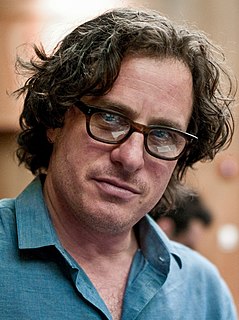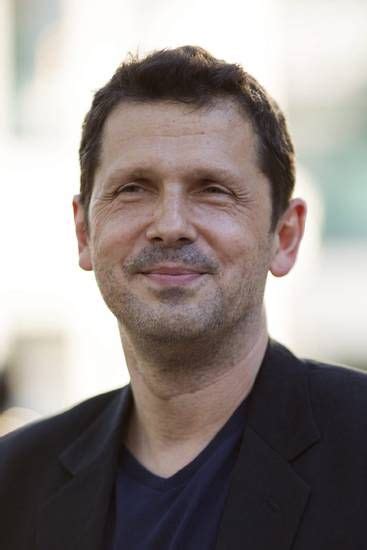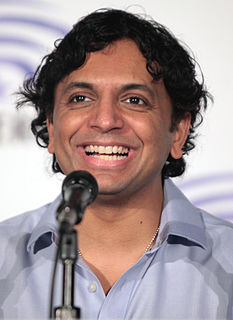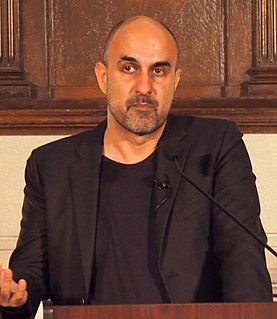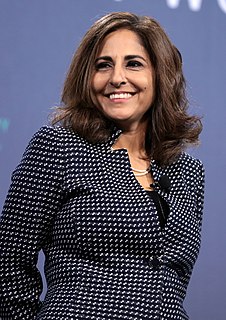A Quote by Margaret MacMillan
I think what we should do as historians is understand. And we can have our own views about how things turned out, but I think, in making judgements, we're getting into tricky territory.
Related Quotes
I think people cast their votes for a number of reasons. I think if you look at your polls, you'll probably find that many, many people think that our views are closer to what they believe the future of America should be. That our views are closer on economic issues. And a lot of those polls come down to demographics, to age, to how much money you are making.
That historians should give their own country a break, I grant you; but not so as to state things contrary to fact. For there are plenty of mistakes made by writers out of ignorance, and which any man finds it difficult to avoid. But if we knowingly write what is false, whether for the sake of our country or our friends or just to be pleasant, what difference is there between us and hack writers? Readers should be very attentive to and critical of historians, and they in turn should be constantly on their guard.
I think I understand what bands want, just from having made records myself. I understand what it takes to get a good vocal sound, or to make people comfortable in the studio. From minor things like their headphone mix - and if a singer's singing, how they should hear themselves - to how to make people feel that they're getting exactly what they want. All those things, I think, are an advantage, especially the part about having done it myself. I'm not just an engineer who records the sounds well. I'm not afraid to take chances.
I think there's a real problem if you're making a film - some people have done whether it be about Jackson Pollock or about Picasso - it's difficult for actors, because they have to impersonate a person whose image is very strong in our memories or in our consciousness. It's something that's very tricky, I think.
I don't think school reform should be motivated by missionary zeal. I think it should be motivated by evidence of what works. I have been critical of Teach For America in the past but I think one of the things about their model that's interesting is that they're constantly looking at it and whether what they're doing works and reassessing their model, and making changes. So to the extent that I believe everyone in the education sector should be looking at evidence, reassessing, making tweaks to figure out what works, I think it's a positive model.
One of the central challenges for global conversation today is to find ways of getting to understand very different views about gender and sexuality. But we should start by recognizing that these issues are subjct to disputation within every society as well as across societies. We need a global conversation that recognizes that we have these very different views. Next, try to agree on fundamental rights: things we think every person is entitled to. Finally, if we're convinced that what a government or a society elsewhere is doing to some people is badly wrong and the conversation gets nowhere.
I think one of my favorite things about making low budget movies is that when you get into expensive moviemaking territory, it's almost impossible not to reverse engineer the movies. It's irresponsible not to think about the result and the financial result. But when you make low budget movies, you can put that out of your head.
I think it's absolutely possible to write a song and go somewhere where no one's been before, uncharted territory. In terms of content, I see limitations where there should be none. I know there are things I wouldn't write about, but that shouldn't be the case. You should be able to make a song out of anything, out of any situation.
In good novelistic fashion, the discovery I’ve made is that it’s complicated. I think that’s one of good things about exploring these questions in a non-polemic, fictional way: you get to feel out territory rather than take positions. Through writing this, I can understand the impulse to faith, how people make meaning, how people make community, without having to say, do this, don’t do that, or I believe, I don’t believe.
When I say things, when I speak on television, I'm not making stuff up. I'm not, like, sitting in the back with a notepad thinking, 'Maybe this will make them think I'm crazy'. That's how I really am, you know? My views on this and that, which I really don't want to delve into, but my views are that of the real me. There is no character.
I think that Democrats have to think through answers we haven't in the past: How we are going to create those jobs? How should we restructure the entire tax code? Should we have things like a payroll tax, when jobs are so scarce? They weren't - basically the architecture of our employment law, tax law, all these things were from the 1930s - and I do think that one benefit of Donald Trump, which is not worth it, but one perverse thing is, he has widened the scope of things that we should discuss.



